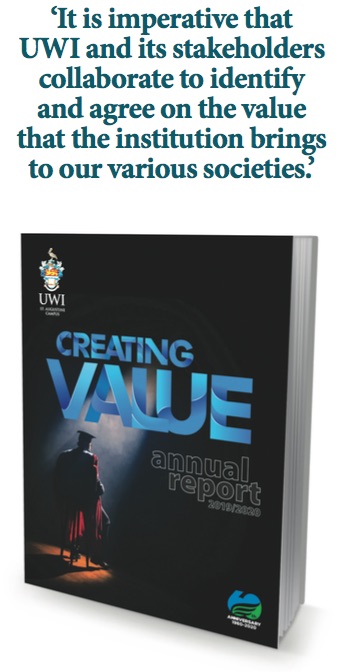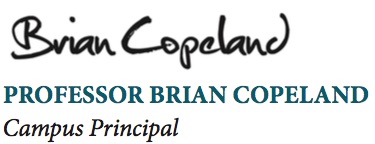The following is an excerpt from the Principal’s Review delivered at the 2021 Campus Council meeting and published in the UWI St Augustine 2019/2020 Annual Report.

When the year started in August 2019, the campus was looking forward to celebrating its 60th anniversary. We were laser-focused on putting everything in place to open the St Augustine Campus at Penal-Debe during the academic year. But just prior to mid-year, we were alerted to the outbreak of a yet unnamed virus in Wuhan, China, and had begun to prepare for its possible impact. That said, few could have predicted the extent to which the COVID-19 virus would take lives and up-end economies.
There has been much discussion about the changes that this pandemic will bring about for our world as we rethink the way we work, exist in our environment, and interact. In the higher education sector, the focus has been on the likely changes to delivery of programmes – the education and fundamental knowledge transfer function of a university. But there has been little consideration of the other equally fundamental function of a university – that of knowledge creation, commonly known as research. The same research that has helped us survive this global crisis thus far, and which will be integral to creating a safe and sustainable new normal.
The challenges to the survival of The UWI in the post-pandemic information age require an institution that is accessible, agile, and aligned to the needs of its major stakeholders, with a structure that can provide the transparency and accountability that are increasingly demanded by modern society of all institutions – government and business, public and private.
Some four years ago, the St Augustine Campus started its own introspection and review, by:
We provide an update on the relevant initiatives in our 2019-2020 annual report, all within the context of The UWI’s 2017-2022 Strategic Plan.
Of significance to this matter of institutional introspection is the ongoing but long overdue university-wide review of The UWI governance system. This exercise has brought two intrinsic issues to the fore. The first relates to the need to highlight and ascribe value to the many outputs from institutions like ours. The second pertains to the cultures required to generate these outputs. There is much to discuss on these and other issues.
While the output of graduates from the various teaching programmes is by far the most visible and easily identified output, universities also impact society through their research and outreach activities. The significance of these two are generally neither fully recognised nor appreciated by the wider society or, at times, by even university stakeholders – including university academics and support staff. However, the fact remains that a university draws upon the society in which it is situated and brings to bear its knowledge and expertise to impact on that society in a variety of ways.

It needs to be understood that research engagement is the very core of any institution that is called a university. Indeed, The UWI Charter (1972), Article 2(a) states that it is “To provide a place or places of education, learning and research of a standard required and expected of a university of the highest standard….” Further, it is largely through university research that society has been “enlightened” and has developed as much as it has in the past few centuries.
However, all the above really leads to questions of research financing. From all accounts, traditionally scholarly activity was primarily financed through the tuition charged to students who, it was assumed, would benefit from the experience and expertise of those who operate at the boundary of knowledge. Since the industrial revolution, research funding has increasingly diversified to include private funding from industry and commerce, seeking to improve their competitiveness or create products anew.
The UWI inherited its DNA from the University of London and it has done well to date. But, even as its predecessor grapples with the same questions of funding and relevance, the time has come for The UWI to engage in discourse with its stakeholders on, for example, who pays for the resources required to generate research output?
Why (in the context of a university located in a developing nation) should research be funded if, in particular, the benefit of the research effort is not of immediate benefit? How can research staff performance be best recognised and rewarded? The latter is a question that The UWI and other universities are still grappling with, especially when determining assessment and promotions. It is imperative that The UWI and its stakeholders collaborate to identify and agree on the value that the institution brings to our various societies.
For the entirety of Professor Copeland’s review, annual report highlights and the full report, visit https://sway.office.com/eAHCwIlvATYlJucJ.
